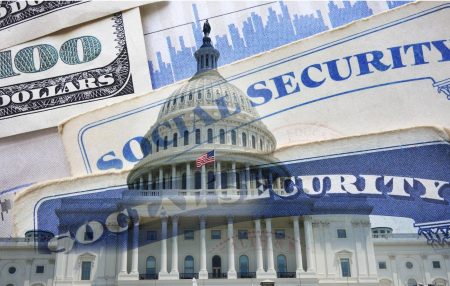Whether you dream of retiring ASAP or working forever, prepping for a secure retirement is a smart move. As someone who has been helping people plan for retirement for several decades, I’ve met many looking to retire by the age of 60 or, if possible, sooner. Keep reading as we share some of the steps needed to retire by the time you reach your 60s.
How Much Money Do You Need To Have Saved To Retire At Age 60?
If you just want to be on track to retire at your full retirement age (67), you should have at least seven times your annual income saved by the time you turn 50. That jumps to 11 times your annual salary at 60. Of course, if you are looking to retire “early” at age 60, you will need to reach retirement planning milestones at younger ages.
If you want to maintain your pre-retirement lifestyle (which should be the goal if you can swing it), you will want to have about 17 times your annual salary at retirement age. The good news is that as the value of your portfolio grows, it can grow more without your contributions driving the growth. This is the magic of compound interest. If you have $100,000 invested and your account goes up 10%, you earn $10,000. But if you are killing it by accumulating wealth and have $5 million saved, earning 10%, your account balances jump by $500,000!
How much you will need to retire comfortably will depend on your lifestyle and expenses. Those who have paid off their mortgages and/or those who have pensions will need to generate less income from their other retirement accounts to ensure they don’t run out of money as they age. On the other hand, if you love leasing a new car every two years and renting your apartment, none of those expenses are likely to drop much once you leave the workforce. They will likely continue to rise over time; we have seen inflation roar its ugly head over the past few years. That means you will need more money to maintain your standard of living in retirement.
If you are afraid of running out of money in retirement check out this piece with tips to make you money last as long as you do:
Is 60 A Good Age To Retire?
It is a great age to retire for those who can reach financial freedom by the time they turn 60. You are old enough to avoid paying penalties on withdrawals from your retirement accounts and young enough to be still active and tackle some items on your bucket list.
Benefits Of Waiting Until 60 TO Retire
If you choose to retire at age 60, you are still too young to receive Social Security benefits or Medicare. So, be sure to budget to pay for healthcare via the Affordable Care Age. There are subsidies to help keep coverage relatively affordable. The good news is that you are guaranteed coverage if you follow the ACA rules.
What A Good Retirement Budget Might Look Like
In a perfect world, you would have worked with a fiduciary financial planner to create a retirement roadmap, including a retirement income stream you can’t outlive. As a basic rule of thumb, you can use the 4% rule to estimate how much income you can take from your various retirement accounts, with pretty good odds of not running out of money.
For example, if you had $1 million saved for retirement, you could pull out 4% or $40,000 per year. Remember, depending on which type of account you are drawing income from, you will likely owe taxes on some or all of this. Bonus points if you have a large Roth IRA or Roth 401(k) that generates tax-free income.
Retiring at 60 means you won’t yet be eligible to claim Social Security, which could put you in a financial bind, depending on how much you have saved for retirement and your ideal cost of living.
Tips For Working Toward Retirement At 60
If you are planning well ahead for retirement at 60, you may find yourself with quite a few more options to get your finances in shape and have a retirement income that you will enjoy and not outlive. Just adjust many retirement planning assumptions to be reached by age 60.
On the other hand, if you are in your late 50s and dreaming of retiring as soon as possible or at age 50, you may need to be more aggressive to maintain your financial Security as you age. Look for ways to reduce your cost of living as much as possible so you can decrease the amount of income you will need to replace in retirement. This will also help you get the most money into your retirement accounts, which can help you grow your retirement income stream.
Who Should Consider A Retirement Goal Of 60?
I’m a huge fan of retiring early in the right circumstances. Everyone should strive not to have to work until they are 67 or 70. Even if you plan to work forever, knowing that you have the means to retire can take a lot of stress out of working.
We’d all like to choose when we retire. However, for many, the choice isn’t always theirs. Some people need to retire for health reasons. Others may face their career peaking before reaching full retirement age. Who knows? I’ve even heard grumblings that AI may take over all our jobs. While we’ve heard this argument before about other technologies, we may be put out of work this time. Who knows.
Average Savings For A 60-Year-Old American
The average net worth of an American between the ages of 55 and 64 is around $540,000. Millions of Americans have larger net worths, and tens of millions of Americans have saved much less than this amount.
Special Catch-Up Contributions For A 60-Year-Old
For 2025, the catch-up contribution is an extra $7,500 on top of the $23,500 limit for everyone else, for a total limit of $31,000. Additionally, for those who are 60 to 63, that catch-up contribution jumps from $7,500 to $11,250.
Social Security When Retiring Early (Pre-67)
Rarely does it make sense to claim Social Security when you turn 62. You won’t receive your maximum benefit unless you wait until age 70 to claim benefits. Social Security is a major part of many Americans’ retirement income streams. If you are retiring before you plan on claiming benefits, you will want to have a strategy to make up this income to avoid busting your budget.
Whether you want to retire in a few years or decades, start planning now. The earlier you start saving for retirement, the easier it will be to reach financial freedom.
Lastly, be sure to have a plan to minimize taxes on your retirement income.
Read the full article here









